Kompetisi Internasional 2: Matahari Memberi Makan Manusia, Manusia Merombak Matahari
Di sela-sela jadwalku yang sibuk pada hari Rabu (28/08) siang itu, sebuah keajaiban aku sempat menghadiri pemutaran Kompetisi Internasional 2: Sketsa Substansi di Forum Lenteng pada jam 13.00 WIB sebagai bagian dari ARKIPEL Garden of Earthly Delights – 11th Jakarta International Documentary and Experimental Film Festival. Sempat pula aku makan siang sebelum masuk ruang pemutaran.
Valencia Winata, sang kurator, melihat posisi manusia di antara alam semesta. Filem-filem yang ditayangkan memperlihatkan upaya manusia untuk meninggalkan jejak, namun dimakan oleh alam.
Manusia mengubah lingkungan untuk kepentingan sendiri sudah terjadi selama beradab-adab. Kemampuan membunuh binatang purba, mengembangkan api dan alat perak, tinggal di iklim yang ekstrim, selalu ada cara bagi manusia untuk beradaptasi. Namun ada saja situasi yang mengingatkan betapa tidak berdayanya manusia di tangan semesta.
Keegoisan terbesar manusia adalah menganggap dirinya dan alam sebagai entitas yang berbeda-terpisah. Padahal manusia adalah bagian dari alam sebagaimana alam membutuhkan manusia. Bukan hanya kita akan “kembali ke alam”, tapi kita adalah bagian dari alam.
Filem pertama Això També Passarà (2023) Iñaki Antuñano San Luis dan Pepe Ábalos Galcerá menceritakan persiapan Festival Fallas di Valencia, Spanyol. Festival yang merayakan Santo Yosef dengan rakitan patung raksasa dan pertunjukkan kembang api. Filem ini direkam ketik berita pandemi mulai muncul namun karantina belum dilaksanakan. Melihat patung-patung memakai masker sebelum orang-orang, sangat lucu bagaimana benda mati “peka” terhadap kesehatan sebelum para manusia hidup.
Filem kedua, The Seagull / Galeb (2024) dari David Lušičić menceritakan tentang kapal yang disebut “The Seagull” atau “Galeb” yang dulu digunakan oleh mantan Presiden Yugoslavia, Josip Broz Tito untuk pelayaran diplomatik. Cerita runtuhnya Yugoslavia ditampilkan melalui gambar-gambar kapal yang kini kosong dan cerita dari para awak kabin. Apa yang dulu menjadi kebanggaan bangsa kini terdampar di pelabuhan, menjadi ikon sejarah atas masa lampau.
Filem ketiga kali ini membawa audiens ke bawah museum bersama seorang arkeolog mempelajari tulang-tulang paus dalam Dust is a Whale, is Sunlight (2023) karya María Casas Castillo. Melalui tulang tersebut, muncul imajinasi siklus kehidupan alam. Dari sesederhana: Matahari → fitoplankton → udang → Paus, dan kompleks: kamera merekam ilmuan → ilmuan mempelajari paus → paus memakan udang → udang memakan fitoplankton → fitoplankton “memakan” matahari → matahari memberikan cahaya kamera.
Keempat ada filem When the Crows Walk Home (2023) karya Rosa Prosser. Para pembuat filem mengejar Helm Wind, sebutan bagi arus angin kencang dari Timur-Laut ke arah Barat-Daya di Cumbria, Inggris. Konon, warga lokal bisa mengetahui kapan angin akan datang ketika “burung gagak terbang pulang”. Kamera dilepaskan ke udara, terbang, menjadi bagian dari angin, audiens mengalami rasanya menjadi bagian dari angin.
Filem terakhir, Ocean Mud Pickle (2024) karya Paribartana Mohanty memberikan kesan simbolik dan metaforik pada sebuah bencana alam. Ketika warga Satabhaya terpaksa migrasi dari rumah tinggal mereka di pesisir, mereka mengingat kembali masa-masa perpindahan dengan cara masing-masing. Ada yang menceritakan dari sudut geologi, ada yang menggunakan dokumentasi pribadi, ada juga dari cara berdongeng.
Filem-filem pada seleksi kali ini sangat beda antara satu sama lain, namun semuanya menceritakan satu hal: betapa kecilnya posisi kita di alam.
Berabad-abad, kita mencoba memahami “alam”. Ada yang merujuk ke bintang, ada yang menyerahkan diri pada dewa/dewi, ada yang beralih ke sains. Apapun jalurnya, semua sepakat bahwa ada sesuatu yang lebih besar dari manusia, dan upaya kita untuk mengendalikannya tidak selalu berhasil.
International Competition 2: Sun Feeds Humans, Humans Alter the Sun
In the midst of my busy schedule, one Wednesday (28/08) afternoon, it was a miracle I managed to attend the screening of International Competition 2: A Map of Matter at Forum Lenteng at 1 pm as part of ARKIPEL Garden of Earthly Delights – 11th Jakarta International Documentary and Experimental Film Festival. I also managed to eat lunch before entering the screening room.
Valencia Winata, the curator, examines humans amongst nature. The films show how humans have tried to leave their traces or legacies, but all efforts will eventually be consumed by nature.
For the entirety of civilizations, humans have altered the environment for their own survival/sake. The ability to kill prehistoric animals, utilizing fire and tools from silver, living in extreme climate conditions, humans have always managed to adapt. However, there are always moments where we are reminded how helpless we are in the hands of the natural forces.
The great egotism of humans is considering themselves and nature as separate entities. When in fact, humans are part of nature as nature also depends on humans. It’s not that we will “return to nature”, when we already are a part of nature.
The first film Això També Passarà (2023) by Iñaki Antuñano San Luis and Pepe Ábalos Galcerá shows the preparations for Fallas Festival in Valencia, Spain. A festival that celebrates Saint Joseph with giant statues and fireworks displays. It was filmed when news of the pandemic began to emerge but quarantine hadn’t been implemented. Seeing the statues wearing masks before people, it was very funny how inanimate objects are made “aware” of their health before living humans.
The second film, The Seagull / Galeb (2024) by David Lušičić tells the story of a ship referred to “The Seagull” or “Galeb” which was used by former President of Yugoslavia, Josip Broz Tito for diplomatic voyages. The collapse of Yugoslavia is told through images of the now abandoned ship and stories from the cabin crew. What used to be the pride of the nation is now beached, becoming a historical icon of the past.
The third film takes the audience under a museum in Dust is a Whale, is Sunlight (2023) by María Casas Castillo, with an archaeologist studying whale bones. Through the bones, the cycle of life in nature is reimagined. From as simple as: the Sun → phytoplankton → krill → whale, and as complex as: the camera records the scientist → the scientist studies the whale → the whale eats the krill → the krill eats the phytoplankton → the phytoplankton “eats” the sun → the sun provides light for the camera.
The fourth film When the Crows Walk Home (2023) by Rosa Prosser. The filmmakers are chasing the Helm Wind, which is what they call the strong north-easterly wind which blows down the south-west in Cumbria, England. It is said that locals can tell when the wind is coming when “the crows fly home”. The camera is released into the air, flying, becoming part of the wind, the audiences, by experience, also become part of the wind.
The last film, Ocean Mud Pickle (2024) by Paribartana Mohanty gives a symbolic and metaphorical explanation to a natural disaster. When the people of Satabhaya were forced to migrate from their coastal homes, they recall the events of their displacement in their own ways. Some tell it from a geological perspective, some use personal documentation, and some also use the form of a sing-song.
The films in this selection were very different from each other, but they all talked about one thing: how little we are in nature.
For centuries, we have tried to understand nature. Some look to the stars, some surrender to the gods/goddesses, some turn to science. Whatever it is, it can be agreed that it is something bigger, and efforts to control it are not always successful.







